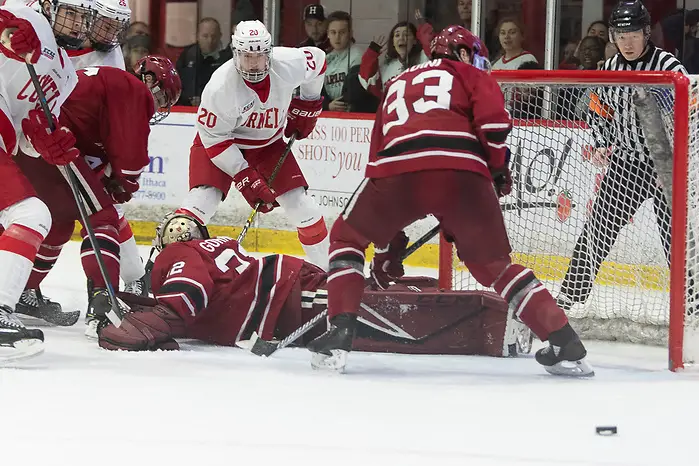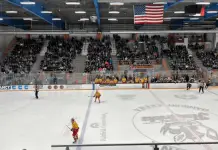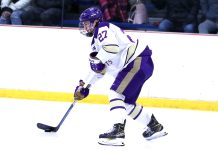
Due to the COVID-19 pandemic, the Ivy League has announced plans for fall sports.
Ivy League institutions, which include ECAC Hockey schools Brown, Cornell, Dartmouth, Harvard, Princeton and Yale, are implementing campus-wide policies including restrictions on student and staff travel, requirements for social distancing, limits on group gatherings, and regulations for visitors to campus.
“As athletics is expected to operate consistent with campus policies, it will not be possible for Ivy League teams to participate in intercollegiate athletics competition prior to the end of the fall semester,” reads a statement. “Practice and other athletic training opportunities for enrolled student-athletes will be permitted provided they are structured in accordance with each institution’s procedures and applicable state regulations.
“The Ivy League will also issue guidelines on a phased approach to conditioning and practice activities to allow for interaction among student-athletes and coaches that will begin with limited individual and small group workouts and build to small group practice sessions, if public health conditions permit.”
For the hockey teams, this decision likely means no games will be played until Jan. 1, 2021, at the earliest.
Fall sport student-athletes will not use a season of Ivy League or NCAA eligibility in the fall, whether or not they enroll. Students who wish to pursue competition during a fifth-year will need to work with their institutions in accordance with campus policy to determine their options beyond their current anticipated graduation date.
The Ivy League Council of Presidents offered the following joint statement:
“As a leadership group, we have a responsibility to make decisions that are in the best interest of the students who attend our institutions, as well as the faculty and staff who work at our schools. These decisions are extremely difficult, particularly when they impact meaningful student-athlete experiences that so many value and cherish.
“With the information available to us today regarding the continued spread of the virus, we simply do not believe we can create and maintain an environment for intercollegiate athletic competition that meets our requirements for safety and acceptable levels of risk, consistent with the policies that each of our schools is adopting as part of its reopening plans this fall.
“We are entrusted to create and maintain an educational environment that is guided by health and safety considerations. There can be no greater responsibility — and that is the basis for this difficult decision.”

